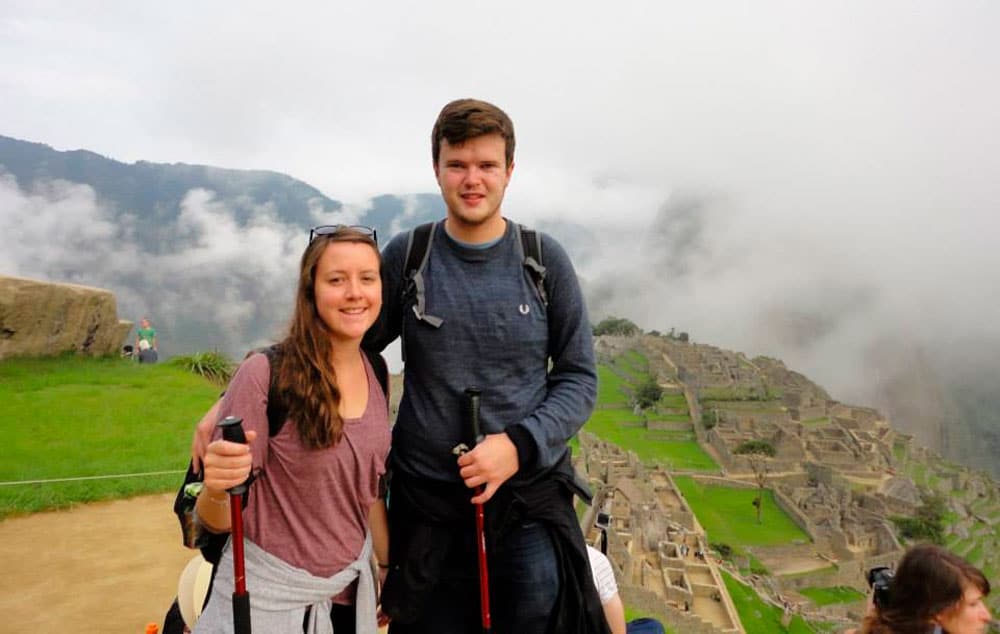What if you could travel back in time to 15th century Peru and ask an Inca what is meant by accessible travel? Besides becoming a human sacrifice you’d most probably get an incredibly confused look. But even though the Incas had no notion of accessible travel or disability rights, it is because of these revolutionary people that the barriers to travel faced by people with disabilities are finally being conquered.
You’re probably wondering what I’m banging on about, so I’ll take you back to the beginning of my story.
Once upon a time (when I was 22) I was diagnosed with Limb Girdle Muscular Dystrophy. As you can imagine the diagnosis was a real kick in the balls for me. It threw my life upside down. For a while I refused to accept it, but I decided that I would make it a part of me and would find a way for it to enrich my life.
So, first things first – quit job, pack bag, run away! And off I went, travelling the globe for 12 months with my wonderful partner Lucy.
But I discovered that as soon as I was taken out of my comfort zone and the routine of my normal life I really began to notice how my condition was affecting me. I had no idea what to expect and therefore travelling to a new place became a nerve-wracking experience. I searched high and low for information on the accessibility of the places I was due to visit, but there was never even a snippet available to me.
 I decided to do something about it, and out of my frustrations Limitless Travel was born.
I decided to do something about it, and out of my frustrations Limitless Travel was born.
Now, this where the Incas play their part! The idea for Limitless Travel came to me when I was half crawling up a flight of large, inaccessible, steep stone steps in the Inca treasure of Machu Picchu. I was tired, thirsty and trying to reach the heart of Peru’s most sacred site before I couldn’t go any further and collapsed from exhaustion.
The problem for me wasn’t the fact the site is inaccessible – there is almost always a way to overcome inaccessibility. The problem was that I had no way of knowing what to expect from the point of view of a disabled person, and therefore no way to prepare. It was always going to be tough, I knew that, but I hadn’t known quite how tough and so I hadn’t prepared adequately. My research had been thorough and I had discovered countless bits of useful information regarding the site – but none of it paid any attention to the needs of a disabled person.
I had reached my boiling point and knew that unless something was done, I would be put off travel altogether. Not knowing what awaits you when visiting a new place and how you will overcome it is a horrible feeling and one which I hope that, due to the work of Limitless Travel, no one will have to experience in future.
So, thanks to the Incas’ complete disregard for the need to install lifts and escalators when they built Machu Picchu (and more importantly, our subsequent failure to write anything about the accessibility of the site), Limitless Travel is revolutionising travel for people with disabilities.
Over the past 12 months we have built a community of writers and disability groups from across the globe who are researching the accessibility of their local areas. Using this information we will be able to provide effective travel information for people with disabilities. In March we launched our innovative website, which features an in-depth guide to London. Over the coming months we will be releasing guides to cities across the UK.
In April we received the wonderful news that we had been selected out of nearly 300 businesses to become a part of the Nominet Trust’s social tech seed programme. The programme provided us with a generous grant and continues to provide invaluable business support.
We are currently helping lots of people plan and book their summer holidays. Visitors to the site are given the choice to book directly through the website or, if they prefer, to speak to an experienced travel advisor.
Limitless Travel is going from strength to strength but we need your help to succeed! If you have any experience travelling with a disability and would like to share your story, please get in touch ([email protected]) and help us make the world accessible for all!
Source: Huffington Post



